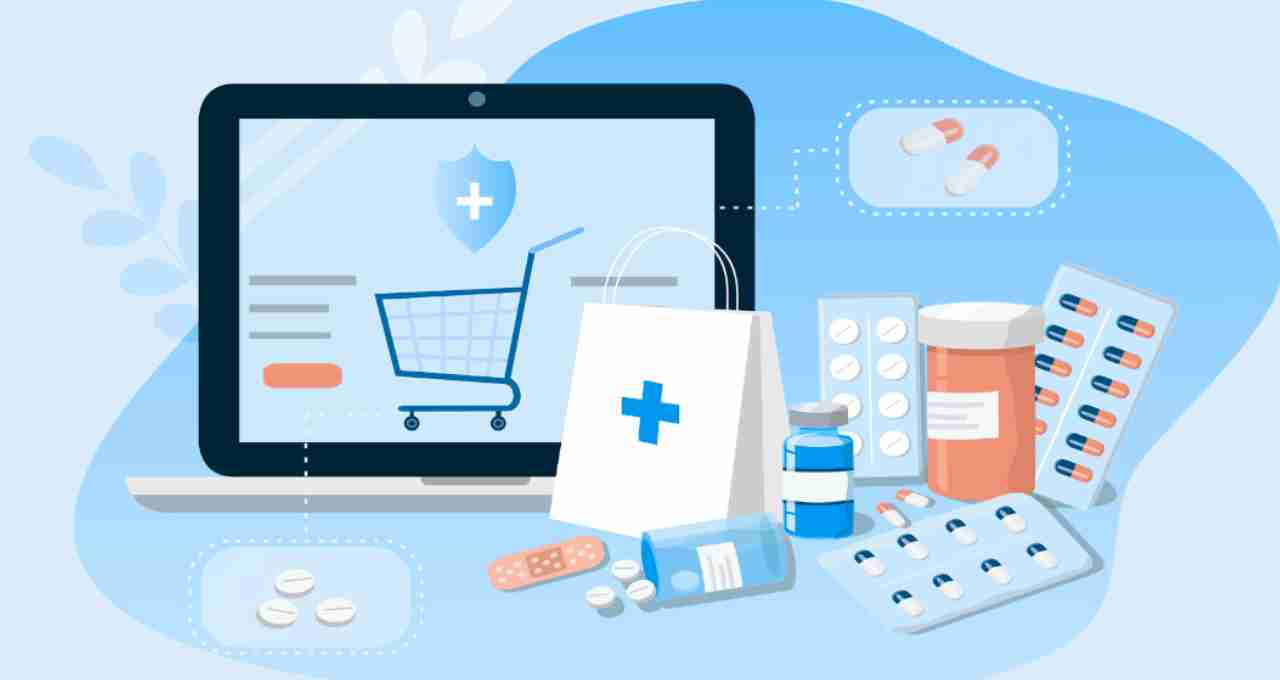E-pharmacy platforms promising medicine delivery within 10 to 60 minutes are now under increased government scrutiny. The Ministry of Health is concerned about their operations and is preparing to introduce new legislation to regulate them.
New Delhi: Online medicine purchases are becoming increasingly common in India, but this expansion of digital services has also raised concerns within the government. Companies claiming to deliver medicines within 10 to 60 minutes are now under close government observation. The Ministry of Health is preparing to introduce a new, dedicated law to regulate this sector. The aim is to establish the accountability of e-pharmacy platforms and ensure patient safety.
Rapidly Growing Digital Pharmacy Market

Since the COVID-19 pandemic, the demand for online medical services in the country has seen a dramatic surge. People increasingly prefer to order medicines from the comfort of their homes. Consequently, major brands like Tata 1mg, Netmeds, PharmEasy, and Apollo 24|7, along with numerous startups, have entered this sector. Recently, platforms like PhonePe's 'Pincode' and Zeelab Pharmacy have launched services delivering medicines within 10 to 60 minutes.
However, while this service appears beneficial to consumers, questions have arisen regarding its operational procedures and potential negligence. The government has received numerous complaints alleging that these companies sell medicines without prescriptions, maintain poor store hygiene, and sell sensitive medications without adequate oversight.
Threat to Patient Safety
According to a senior official in the Ministry of Health, the complaints received regarding e-pharmacy companies have reached a critical level, posing a significant threat to patient safety if immediate intervention is not undertaken. The official stated that some companies are providing potent drugs such as antibiotics, steroids, and sleeping pills without valid prescriptions, directly compromising health.
Furthermore, serious allegations have been raised regarding the "dark stores," or warehouses, used for delivery. These stores often lack adequate cleanliness, temperature control, and secure storage for medicines. This can affect the quality of the medicines, posing a risk to patient health.
Lack of Legislation and Regulatory Challenges

India currently lacks a clear and dedicated law governing the online sale of medicines. The existing 'Drugs and Cosmetics Act, 1940', only addresses the traditional sale of medicines. There are no clear guidelines regarding the operation of online platforms, stocking procedures, prescription validity, data security, and accountability in emergencies. This is why the government feels helpless in taking swift and effective action against these platforms.
The Ministry of Health is now working rapidly to address this deficiency by introducing new legislation with detailed provisions for e-pharmacies. This law will ensure transparency in medicine sales, patient safety, technological oversight, and responsible operation.
Significant Increase in Consumer Numbers
According to a Crisil report, India's retail pharmacy market is approximately ₹2.4 trillion. Currently, e-pharmacies account for only 3-5% of this market, while in developed countries like the US and UK, this share has reached 22-25%. The report suggests that if this sector is properly regulated, the contribution of e-pharmacies in India could reach 15-20% in the coming years.
Demand for online medicines is rapidly increasing across most parts of the country, particularly in urban and semi-urban areas. Elderly people, those with illnesses, and individuals with busy lifestyles are prioritizing digital pharmacies. However, as this convenience grows, so do the concerns about potential flaws and risks.
Positive Potential of E-pharmacies
Despite government concerns, the e-pharmacy model cannot be entirely deemed flawed. If this sector is developed systematically and companies are required to operate under defined standards, it could modernize and improve accessibility to healthcare services in India.
Digital pharmacies can deliver quality medicines to remote areas with limited or no traditional medical stores. Furthermore, technologies like digital records, AI-powered prescription verification, and automated stock management can significantly improve healthcare services.
Need to Hold Companies Accountable
The government's next step will be to introduce a single registration system for all e-pharmacy platforms to ensure only licensed companies sell medicines. A centralized monitoring system will also be developed to track prescription verification, delivery status, and patient feedback.
The government will also monitor companies that disregard regulations in their rush to meet delivery deadlines. Under the regulatory framework, the 'quick delivery' process will need to be made secure and controlled.














